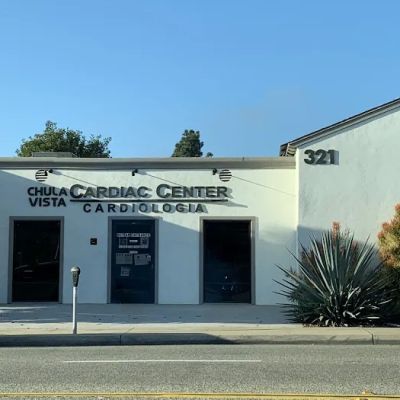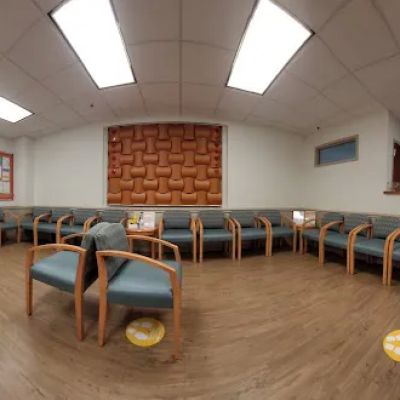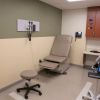- 1-Understanding-Heart-Disease-And-Exercise
- 2-Benefits-Of-Exercise-For-Heart-Disease-Patients
- 3-Types-Of-Exercise-Programs-Suited-For-Heart-Patients
- 4-Designing-A-Safe-Exercise-Plan
- 5-Real-Life-Success-Stories-And-Expert-Insights
- 6-Maintaining-Long-Term-Heart-Health-With-Exercise
1. Understanding Heart Disease and Exercise
Heart disease remains one of the leading causes of mortality worldwide, but exercise programs specifically tailored for individuals with heart disease can dramatically improve outcomes. Understanding the relationship between heart disease and exercise programs is critical to safely incorporating physical activity into daily life. The heart, a muscle, benefits from regular, moderate exercise that strengthens cardiac function, improves circulation, and reduces risk factors like hypertension and obesity.
However, not all exercise is suitable for every heart disease patient. Conditions such as coronary artery disease, heart failure, or arrhythmias require personalized exercise plans supervised by healthcare professionals. Exercising without proper guidance can pose risks, which underscores the importance of specialized cardiac rehabilitation programs.
Education about safe exercise, recognition of warning signs, and gradual progression are foundational to combining heart disease and exercise programs effectively.

How Exercise Influences Heart Health
Physical activity increases heart efficiency by improving stroke volume—the amount of blood pumped per beat—and enhances endothelial function, which maintains flexible, healthy blood vessels. Additionally, exercise helps regulate cholesterol, blood sugar, and weight, all contributing to a healthier cardiovascular system.
Cardiac Solutions
cardiac solutions
5651 W Talavi Blvd, Glendale, AZ 85306, USA

2. Benefits of Exercise for Heart Disease Patients
Exercise programs offer a range of benefits that directly impact the quality of life and longevity for heart disease patients. Beyond strengthening the heart muscle, these benefits include:
- Improved blood pressure control
- Reduction of LDL cholesterol and increased HDL cholesterol
- Weight management and improved metabolism
- Decreased symptoms of angina and shortness of breath
- Enhanced mental health and reduced anxiety or depression related to chronic illness
- Better glucose regulation, lowering the risk of diabetes complications
Medical studies consistently show that patients participating in structured exercise programs have lower rates of rehospitalization and cardiovascular events.
Supporting Data
A 2018 study published in the Journal of the American College of Cardiology found that cardiac rehabilitation including exercise reduced cardiovascular mortality by 20% over five years compared to non-participants. This illustrates the critical role of exercise in managing heart disease.
3. Types of Exercise Programs Suited for Heart Patients
Not every form of exercise is appropriate for heart disease patients. Exercise programs designed for cardiac health typically include:
- Cardiac Rehabilitation Programs: Supervised sessions combining aerobic and resistance training tailored to patient capacity.
- Low-Impact Aerobic Exercises: Walking, cycling on stationary bikes, and swimming are excellent for improving cardiovascular fitness without excessive strain.
- Strength Training: Light weight lifting or resistance band exercises to improve muscle tone and support overall metabolism.
- Flexibility and Balance Work: Yoga and stretching exercises help reduce stiffness and improve overall physical function.
These programs emphasize gradual progression and symptom monitoring to ensure patient safety.
4. Designing a Safe Exercise Plan
Creating an exercise program that balances challenge and safety is vital. The process often starts with a thorough medical evaluation, including stress tests and heart function assessments. Cardiologists and physical therapists then tailor the plan based on individual health status, risk factors, and lifestyle.
Key components include:
- Setting realistic goals aligned with medical advice
- Starting with low intensity and slowly increasing duration and intensity
- Incorporating warm-up and cool-down phases
- Monitoring heart rate and symptoms like chest pain, dizziness, or excessive fatigue
- Regular follow-ups to adjust the program as fitness improves or health status changes
Patients are encouraged to keep logs of their activities and communicate any concerns promptly.
5. Real-Life Success Stories and Expert Insights
John, a 58-year-old diagnosed with coronary artery disease, was hesitant to exercise after his diagnosis. Through a structured cardiac rehabilitation program, he gradually increased his activity levels from short walks to cycling sessions. Over 18 months, John lost 30 pounds, lowered his blood pressure, and significantly improved his energy levels. His story highlights how tailored exercise programs empower heart disease patients to regain control of their health.
Cardiologist Dr. Emily Turner emphasizes, “Exercise is medicine for the heart, but it must be prescribed with care. Our goal is to build confidence in patients, ensuring they safely benefit from physical activity.”
6. Maintaining Long-Term Heart Health with Exercise
Exercise should be viewed as a lifelong commitment rather than a short-term fix. For sustained heart health, patients should incorporate physical activity into daily routines and adapt programs as needed. Lifestyle changes including a balanced diet, stress management, and smoking cessation complement exercise benefits.
Community support groups and resources like HeartCare Hub provide valuable tools, educational materials, and access to specialized exercise programs designed for heart disease patients. Such support enhances adherence and improves outcomes.
By embracing exercise thoughtfully and consistently, individuals with heart disease can improve quality of life, reduce symptoms, and potentially extend longevity.
For those seeking personalized guidance, equipment, or professional services related to heart disease and exercise programs, HeartCare Hub offers comprehensive solutions to support your heart health journey.





















Deborah Heart and Lung Center
deborah heart and lung center
200 Trenton Rd, Browns Mills, NJ 08015, USA